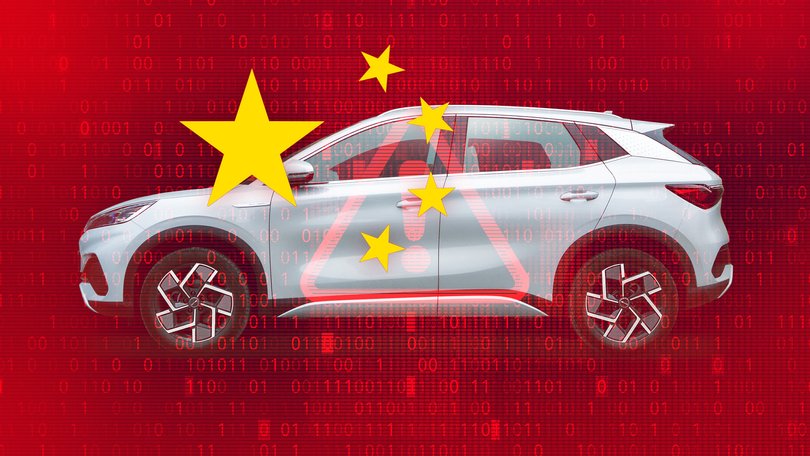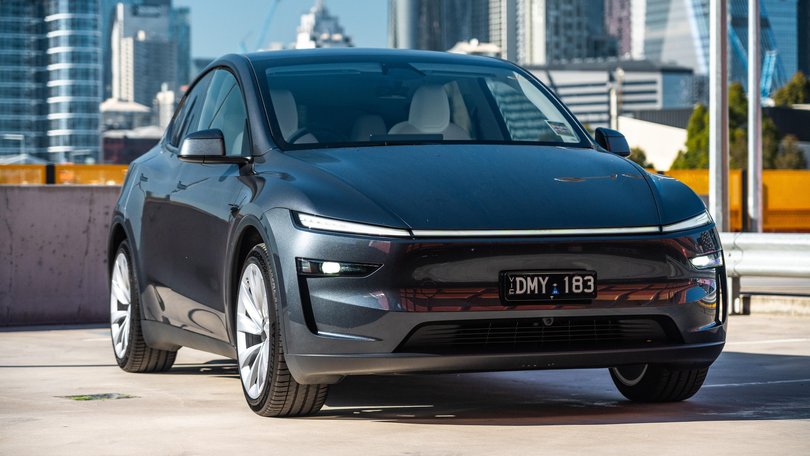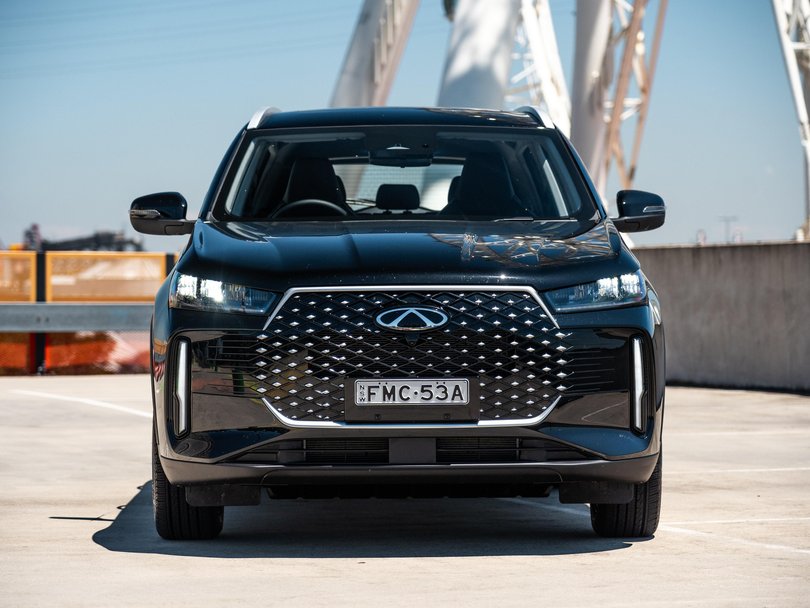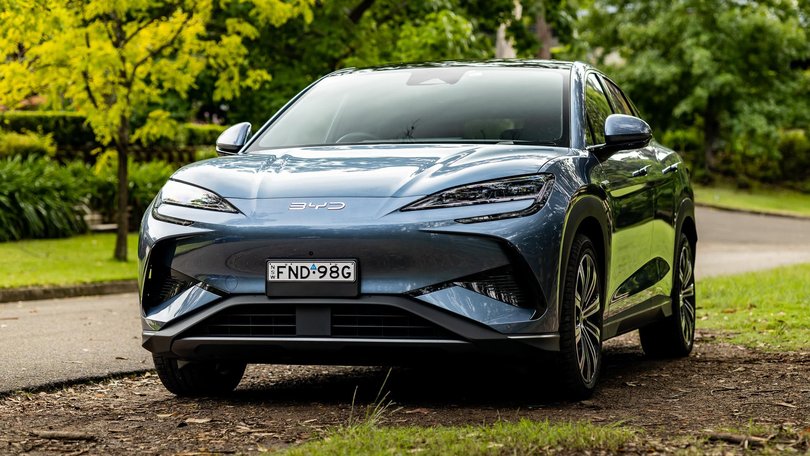Chinese cars have become the second-most popular, but one expert says they are a security threat
China has become Australia’s second-biggest source of cars, with more than 760,000 sold in Australia since 2020. But an expert says we’re ‘blind’ to one very big problem.

China has become Australia’s second-biggest source of cars, prompting warnings from an expert that they could pose a security risk.
In September, 25,857 Chinese-made cars were sold in Australia, surpassing Thai-made cars and just 733 units behind Japanese imports, which have been number one since 1998, Federal Chamber of Automotive Industries and Electric Vehicle Council data showed.
Strategic Analysis Australia founder Michael Shoebridge said Chinese cars, which make up a quarter of all sales, are a national security threat because they can record passengers’ conversations and even be turned off remotely.
Sign up to The Nightly's newsletters.
Get the first look at the digital newspaper, curated daily stories and breaking headlines delivered to your inbox.
By continuing you agree to our Terms and Privacy Policy.“If you’ve got a government official or a minister or a corporate leader driving around in a Chinese electric vehicle, everything they say and do in the car can be known by the company that manufactures the car and therefore by the Chinese Government,” he told The Nightly.
“The other obvious security issue is being able to disrupt and disable the operation of a growing chunk of Australia’s transport system at times of tension and crisis. They can disrupt individual vehicles. Each vehicle becomes a potential, individual weapon.
“These are software-defined systems, and the software has reach back to the company headquarters. It’s bizarre that government policy is blind to the security risks.”
Growing market

Since the start of the decade, 762,211 cars made in China have been sold in Australia. Chinese companies produce 78 per cent of battery-electric vehicles sold in Australia.
While EVs only have an 8.1 per cent market share, this is expected to grow because Labor’s New Vehicle Efficiency Standard aims to slash carbon emissions by 59 per cent by 2029 and penalises car manufacturers that sell too many petrol and diesel cars.
While Toyota continues as Australia’s most popular car brand, Chinese marques GWM, BYD and MG had three places in the top 10 in September.
The Tesla Model Y, made in Shanghai, was Australia’s most popular Chinese-made car with 3927 sales, Electric Vehicle Council data showed. Like the Apple iPhone sold in Australia, they are made in China but American designed.
In one of his last acts as US president, Joe Biden in January announced new bans on Chinese cars and trucks as part of a crackdown on vehicle software from China, coming into effect in 2027.
Tiggo, Sealion

Chinese cars also held the three spots in the top 10, by model, with the Chery Tiggo 4 Pro in sixth place with 2048 sales on the Federal Chamber of Automotive Industries chart.
The fully-electric BYD Sealion 7 was in eighth place with 1887 sales while the Haval Jolion rounded out the top 19 with 1881 ordered.
BYD, the world’s biggest producer of electric cars, was more popular than some established Japanese brands, with 5084 sold last month, compared with 4737 Mitsubishis.

Thailand, the maker of the top-selling Toyota HiLux and Ford Ranger utes, was the third biggest source of new cars in September.
South Korea was in fourth place, with no models in the top 10, even though Kia and Hyundai were Australia’s fourth and fifth most popular brands.
The Japanese-made Toyota RAV4 and LandCruiser were still more popular than any Chinese SUVs, for now.

